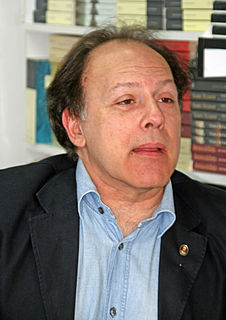A Quote by Steven Weinberg
If we had the fundamental laws of nature tomorrow, we still wouldn't understand consciousness. We wouldn't even understand turbulence.
Quote Topics
Related Quotes
e idea of a personal God is quite alien to me and seems even naive. However, I am also not a "Freethinker" in the usual sense of the word because I find that this is in the main an attitude nourished exclusively by an opposition against naive superstition. My feeling is insofar religious as I am imbued with the consciousness of the insuffiency of the human mind to understand deeply the harmony of the Universe which we try to formulate as "laws of nature." It is this consciousness and humility I miss in the Freethinker mentality. Sincerely yours, Albert Einstein.
Everything we do understand about the universe - the periodic table of elements, Einstein's laws, Newton's laws, all of chemistry, all of biology - that's 4 percent of the universe. We got to the moon on the 4 percent we do understand. We landed on Mars on the 4 percent we do understand. So the day we crack the nut of the rest of that 95 percent... Oh my gosh.
People need to understand; I may have been very innocent. Didn't understand the devil. Didn't understand any of that. You can only push a child so far. You have laws; number one. And number two; I had been doing this so long, I could say now that I don't want to do something. But after a certain while, they knew when they had pushed their luck with me, and that it was time to, you know, maybe back off.
Let us guard against saying that there are laws in nature. There are merely necessities: there is no one who commands, no one whoobeys, no one who transgresses. Once you understand that there are no purposes, then you also understand that nothing is accidental: for it is only in a world of purposes that the word "accident" makes sense.
Experiences such as, 'I went; I came; I was; I did,' come naturally to everyone. From these experiences, does it not appear that the consciousness 'I' is the subject of those various acts? Enquiry into the true nature of that consciousness, and remaining as oneself, is the way to understand, through enquiry, one's true nature.
The responsibility for the creation of new scientific knowledge - and for most of its application - rests on that small body of men and women who understand the fundamental laws of nature and are skilled in the techniques of scientific research. We shall have rapid or slow advance on any scientific frontier depending on the number of highly qualified and trained scientists exploring it.
The road toward equality of freedom is not easy, and great cost and danger march alongside us. We are committed to peaceful and nonviolent change, and that is important for all to understand - though all change is unsettling. Still, even in the turbulence of protest and struggle is greater hope for the future, as men learn to claim and achieve for themselves the rights formerly petitioned from others.
I have a tendency to want to understand everything people say and everything I hear, both at work and outside, even at a distance, even if it’s one of the innumerable languages I don’t know, even if it’s in an indistinguishable murmur or imperceptible whisper, even if it would be better that I didn’t understand and what’s said is not intended for my ears or is said precisely so I won’t understand it.
The assumption that the laws of nature are eternal is a vestige of the Christian belief system that informed the early postulates of modern science in the seventeenth century. Perhaps the laws of nature have actually evolved along with nature itself, and perhaps they are still evolving. Or perhaps they are not laws at all, but more like habits.


































